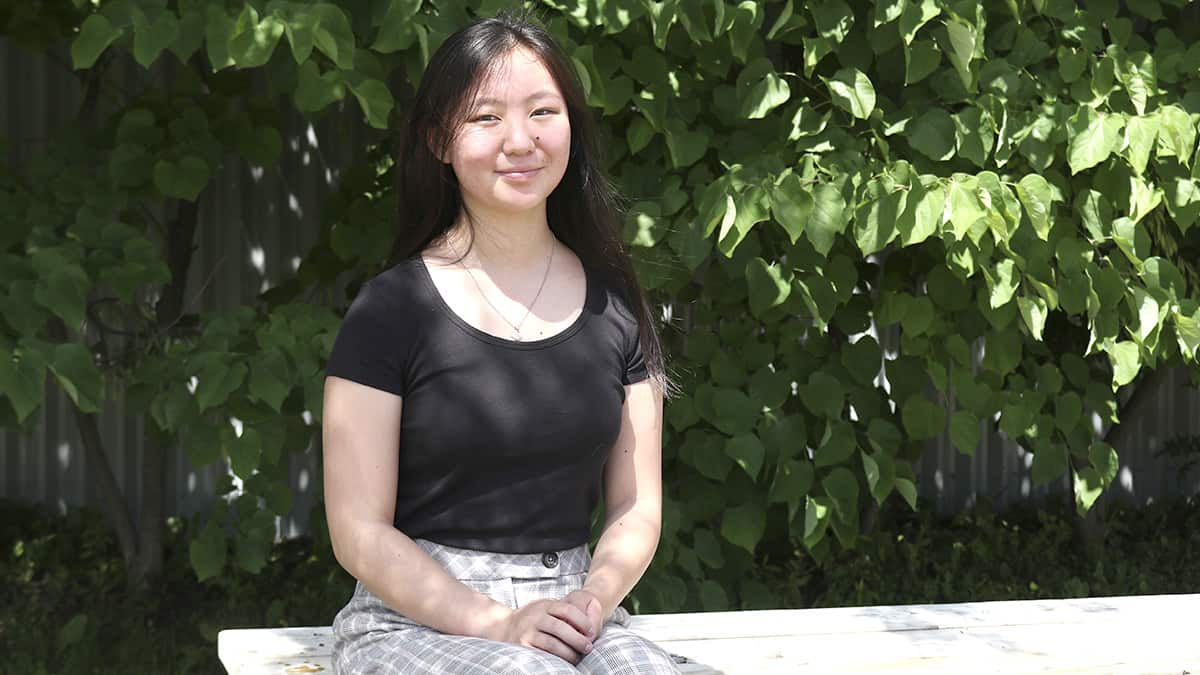We’re a society that’s already become more screen-centric – focused on our phones, computers, video-game consoles and those old standbys, televisions – but that trend has accelerated of late. Kids, in particular, spend much more time bathed in the glow of some device or other.
Thanks to the coronavirus pandemic and the lockdown that followed, many of the normal activities that would occupy the time of kids were put on the backburner, leaving them with not much to do besides turn their attention to the devices parents might normally monitor more closely.
Screen time has risen dramatically through the pandemic. Combating that trend and giving parents some alternatives to keep kids busy were the impetus of a new presentation created by the Woolwich Community Health Centre.
Alice Wang, a youth community worker with WCHC who prepared the presentation, wants to help parents by not only giving them alternatives so they are able to limit the amount of times kids spend on screens but also keep them active so they are able to better prepare for remote schooling come the fall.
“We know quarantine is hard on everybody in the family, and we know screens can be harmful in excess amounts. It can be hard to distract away from screens when we’re confined to the space or our home, so we compiled a lot of fun ways to spend time and stimulating learning or creativity. Not all of the ideas are new, but it’s nice to have all the ideas, both the new and the classics all in one place,” said Wang. “There’s some ideas for arts and crafts and like learning opportunities such as gardening and fun ways to discover computer science and coding which will be helpful for the coming years. We also discussed ways to prepare for schooling in September, and where to find helpful resources in around Woolwich. Just trying to provide more activities that make leaving screens sound more appealing because if you just say, ‘oh, get off your phones,’ that’s not going to sound too appealing. But, if there’s a lot of other activities that might be available, they might just leave their screens by themselves.”
She continues by focusing on the fact that not all screen time is bad, saying that in many ways it can be productive. However, parents do need to monitor how much time kids spend on there, even when doing things such as coding, educational games and other fun things which give kids the opportunity to learn.
Downfalls that stem from too much screen time include impacts from blue light, which Wang says can have a detrimental effect on kids’ ability to fall asleep. Science behind blue light shows that not only will sleep be disrupted, but memory is also affected making it harder to learn and cause a buildup of neurotoxins that, over a longer period of time, can make it more difficult to sleep and potentially lead to larger mental health issues such as depression.
Because COVID-19 has changed the way many kids will learn and attend school starting this fall, Wang has some suggestions for kids to keep them at their best. She says kids should not simply roll out of bed and head to their computer screen, staying in their pajamas all day while going through class lectures, instead prepare as if they were going to school and keep a normal routine.
“The best tip I’ve come up with…[would be to] still take your walks in the morning [get] dressed up like you would to go to school, wake yourself up have enough time to go through your routine that you normally would. Go outside and go for like a short little walk to get your brain ready. Because you used to walk into the bus or walk into school [it will keep you to a routine],” said Wang.
She encourages parents to ask kids more questions and ensure they are finding a balance during this time so they can ensure everything is going as smoothly as possible.









